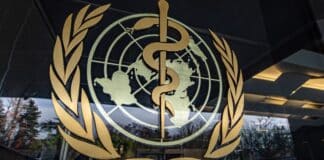The Centers for Disease Control and Prevention now says that each individual is responsible for choosing whether or not to receive the COVID-19 vaccine.
“Informed consent is back,” said Deputy CDC Secretary O’Neill. “CDC’s 2022 blanket recommendation for perpetual COVID-19 boosters deterred health care providers from talking about the risks and benefits of vaccination for the individual patient or parent. That changes today.”
The CDC has also recommended that children receive a standalone vaccine against chickenpox instead of one combined with measles, mumps, and rubella. The push for individual choice in vaccination “means that the clinical decision to vaccinate should be based on patient characteristics that unlike age are difficult to incorporate in recommendations, including risk factors for the underlying disease as well as the characteristics of the vaccine itself and the best available evidence of who may benefit from vaccination,” the CDC explained.
“I commend the doctors and public health experts of ACIP for educating Americans about important vaccine safety signals,” O’Neill added. “I also thank President Trump for his leadership in making sure we protect children from unintended side effects during routine immunization.”
Last month, the Advisory Committee on Immunization Practices (ACIP) unanimously urged the CDC to recommend that people receive the COVID-19 vaccine only after speaking with a health care provider.
Similarly, a presentation from the CDC Immunization Safety Office described that toddlers between the ages of 12-23 months “have increased risk of febrile seizure seven to 10 days after MMRV vaccination compared to those given separate immunization for varicella and measles, mumps, and rubella (MMR),” the Department of Health and Human Services explained at the time.





